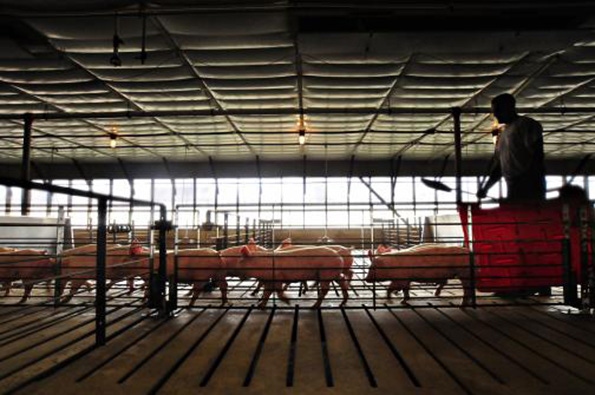American industries have long relied on exports to keep our domestic economy flowing smoothly. U.S. farmers are realizing just how reliant our country has become on shipping our products elsewhere.

Isn’t it ironic, don’t you think? On Wednesday we celebrated our nation’s independence, marking 242 years since we broke free from British rule. Now, U.S. agriculture, as well as other industries, is coming to realize just how dependent we have become on other countries.
American industries have long relied on exports to keep our domestic economy flowing smoothly. U.S. farmers are realizing just how reliant our country has become on shipping our products elsewhere. The amount of U.S. pork that is landing on foreign dinner tables has continued to grow over the last few years, reaching almost 27% recently. That’s more than one of every four U.S. pork chops hitting the high seas for an international destination.
U.S. producers have increased and continue to increase their production, and were counting on exports to gobble up the pork supplies, but now those opened gates to the world may be slamming shut.
Even before President Trump took the oath office in January of 2017, he vowed to pull the United States out of some trade deals while having others reworked. We always complain when a politician doesn’t keep campaign promises, and now that one finally does, it’s like a burr under our saddle blanket and an ulcer burning our gut.
Burning most is that the Trump administration has announced tariffs on steel and aluminum imports from many countries of the world. Agriculture was in the crosshairs of retaliatory tariffs from China, Mexico and Canada, just to name a few. One example is that Mexico imposed a 10% tariff on chilled and frozen pork muscle cuts effective a month ago, and that doubled yesterday to 20%.
China is scheduled to start collecting an additional 25% import duty today on American pork products as it targets $34 billion worth of U.S. goods in response to Trump’s action against Beijing for alleged intellectual property theft. According to a statement from the National Pork Producers Council, U.S. pork producers now face punitive tariffs of 62% on exports to China, a market that represented 17% of total U.S. exports by value in 2017.
It has been estimated that these retaliatory tariffs will impact U.S. hog producers to the tune of $18 per head. That’s a loss of $18 per head. You know what your farm’s production is, and you can run the numbers to see the impact on your individual farm and across the entire pork industry. How long that impact lasts will be the multi-million-dollar question that has the pork industry holding its collective breath.
Even if cooler heads prevail, and all the Trump-imposed tariffs and retaliatory tariffs go away, the bad taste will linger. The United States, looked at as a reliable business partner, will more than likely fall from that status and it will be slow to recover. The Carter grain embargo lasted about 16 months, but it took years for U.S. agriculture to recover.
Even if/when cooler heads prevail and the trade issues are resolved, it may be too late for too many hog producers and farmers in general.
About the Author(s)
You May Also Like



